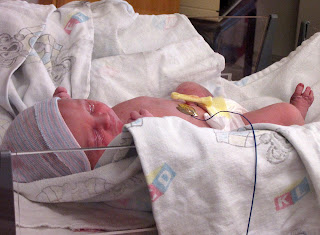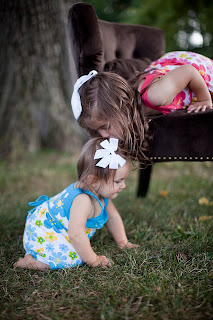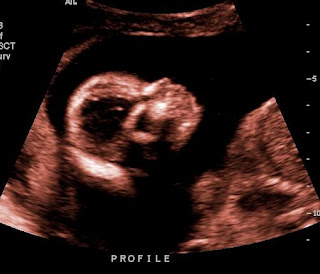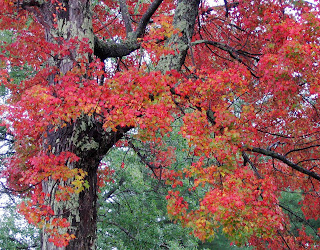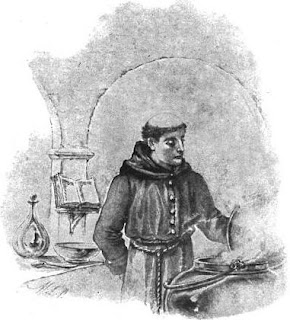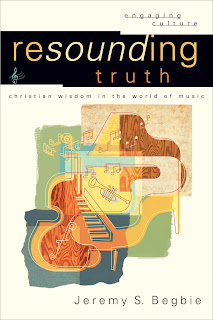Category Archives: glorify
The Risk of Glorifying God
“You are a carrier for hemophilia.”
Vivid
A Psalm of Love
What You Should Do Next
What should we do now?
How should we respond?
When life seems to be running rapidly into a dead end
When we feel carved out and emptied by the rivers of this world’s realities
When the weight of our pain threatens to crush
When our hearts are pitted and scarred by pain, anguish, shame
What should we do?
Yes, we continue to obey, to follow the signs.
To what purpose? To what end?
The men who walked in the fire told a king that even if God refused to rescue, they would continue to obey.
The man who lost all but his life declared that even if God took the last thing remaining to him, he would continue to trust.
Why do we obey, why do we trust even when we cannot seem to find the light?
Listen.
Listen to the Word speak.
Listen to what the Word says as He is drawing very near to His own darkness.
“Now my heart is troubled, and what shall I say? ‘Father, save me from this hour’? No, it was for this very reason I came to this hour. Father, glorify your name!”
The Glory of God our Father.
Out of the rocks, His glory bursts forth.
Out of the dead and the dying, His beauty shines out.
All praise to God the Father, God the Son, and God the Holy Spirit.
Father, glorify Your name!
Love the Lord your God
Lately I’ve been hearing and reading a lot about what I should do as a follower of Jesus.
I’ve read about persecuted people who live in third-world countries, families who sell their homes so they can adopt more children, young parents who move to the inner city.
When Jesus calls us to abandon everything we have and everything we are, it’s almost as if he is daring us to put ourselves in the flood plain. To put all our lives…all our property and all our possessions…all our hopes and all our dreams in front of the levee and then to ask God to break it. To ask God to sweep away whatever he wants, to leave standing whatever he desires, and to remake our lives…according to his will. ~ Radical by David Platt
We have to continue to fight – for the individual and against evil and destructive forces – because the cause is always worthy. And once you have stepped into this world, you can never walk away. Once you have been made aware, you have a responsibility to care. ~ The Scent of Water by Naomi Zacharias
I’ve read and heard many important and completely true things.
Jesus does ask us to give up everything for Him.
He said that if we do not hate our own lives, our own families in comparison to Him, we cannot follow Him.
Salvation is free, but discipleship costs everything we have. ~ Billy Graham
As I read and listen, guilt begins to trickle into my heart.
Am I doing enough? Am I living right? Am I giving up everything for God? Am I too comfortable in my current life?
This is a dangerous thought-road for me, partly because I am a firstborn and I love rules.
I like lists and I want to know exactly what I have to do to be in obedience to God.
As I begin to think about our family, however, I am reminded of the things that we are doing for Christ.
Having kids at all is a big step. I didn’t always want children, but God convinced me that this was one way in which He wanted me to serve Him: to have and raise up children who will glorify Him with their lives.
We have made a lot of material sacrifices, both for me to stay home with our children, in order to personally raise them in a way that will glorify Him, and for us to not start adding up debt so that eventually we can have disposable income that we can give back to God.
Could we do more?
Of course. And that is the trouble.
No matter how frugally we live, how much we give away, how much time we sacrifice, it can never be enough.
We could always do more. It is impossible to do enough to repay all that God has done for me. It is impossible to truly give up everything for Jesus.
So what do I do? Wallow in my guilt? Give up because of my inability to do or give enough? Is that really what all of these books and teachers are telling me?
No, but I’m afraid that it seems that way at times.
I am learning however, very slowly, that it is not about what I do or don’t do, it is not about what I give or don’t give. It is about a relationship.
My relationship with the Triune God is what is most important in this life. This is more important than giving away all of my possessions. This is more important than eradicating all of the sin in my life. This is more important than moving to the inner city or telling everyone I know about God.
What I focus on most has to be my desire for God.
Love the Lord your God with all your heart and with all your soul and with all your mind and with all your strength. The second is this: Love your neighbor as yourself. There is no commandment greater than these. ~ Mark 12.30-31
The idea of the primacy of loving and desiring God is made more clear in the writings of Brother Lawrence:
I know that for the right practice of it, the heart must be empty of all other things because God will possess the heart alone. As He cannot possess it alone without emptying it of all besides, so, neither can He act there and do in it what He pleases, unless it be left vacant to Him.
You need not cry very loud. He is nearer to us than we are aware. Every one is capable of such familiar conversation with God; some more, some less. He knows what we can do. Let us begin then. Perhaps He expects but one generous resolution on our part. Have courage.
We must know before we can love. In order to know God, we must often think of Him. And when we come to love Him, we shall then also think of Him often, for our heart will be with our treasure.
What do I desire most of all in this life? Whom do I love best?
If it is not God, than it doesn’t matter how radically I live, how much of my time or resources I give away.
If I do desire God most of all, even if I am simply trying to love God best, than I can trust myself to His hands, knowing that He will change my heart, which will naturally change the way I live. I will know what He wants me to do, how He wants me to live, and I will be at peace even if others think I am not doing enough or not doing the right things.
Again, I will reference Brother Lawrence:
when he had failed to love God best of all, he only confessed his fault saying to God, “I shall never do otherwise, if You leave me to myself. It is You who must hinder my failing and mend what is amiss.” Then, after this, he gave himself no further uneasiness about it.
Abba, please help me to desire You most of all, to love You above all. If left to myself, I will never love You. It is You who must mend my broken heart. It is You who must purify my heart so that my life will glorify You. Let me only pursue my love for You and then be at peace, trusting that You will not let me fail.
To him who is able to keep you from stumbling and to present you before his glorious presence without fault and with great joy – to the only God our Savior be glory, majesty, power and authority, through Jesus Christ our Lord, before all ages, now and forevermore! Amen. ~ Jude 1.24-25
To Voice Creation’s Praise
I am a musician.
I have never considered how music as an art points to God.
The materials we use to produce sounds (both instruments and vocal chords), the sound waves themselves, our bodies (both in producing sounds and in being able to hear sounds), and even time are all things that already exist, created by God, with which we are allowed to join.
If, by making music, we are tuning in to something that has already been created, perhaps music is able to “elicit something of the character of the cosmos and through that testify to the Creator”. As well as declaring the glory of God, perhaps music (all of the arts, really!) “through the Spirit, (is) capable of granting glimpses of eternal beauty and as such can anticipate and give a foretaste of the transfiguration of the cosmos”, that moment when all of creation will be made perfect.
We should be awe-filled and grateful for the very possibility of music.
It will mean regularly allowing a piece of music to stop us in our tracks and make us grateful that there is a world where music can occur, that there is a reality we call “matter” that oscillates and resonates, that there is sound, that there is rhythm built into the fabric of the world, that there is the miracle of the human body…
None of this had to exist, but it does, for the glory of God and for our flourishing.
As I think about this theology of music, it draws me to the essential habit of gratitude.
Giving thanks is the way into joy. ~ Ann Voskamp in One Thousand Gifts
Paul says in Philippians 4 to not be anxious but rather to give everything to God with thanksgiving and in return, God will give you the gift of peace.
It seems almost ludicrous now, but before reading this book I had never thought through what music can teach us about God. How could I have gone so long without thinking through the implications of this art that I practice? Perhaps this is something that the rest of you have put together long before now, but I am a little slow at times.
I have already, in a previous essay, discussed what music teaches us about the goodness of time, the goodness of delay. Music also teaches us that tension is not bad, that by not trying to skip over days with
dark shadows and turns, we allow ourselves to be led far more profoundly into the story’s sense and power. Music is remarkably instructive here, because more than any other art form, it teaches us how not to rush over tension, how to find joy and fulfillment through a temporal movement that includes struggles, clashes and fractures.
Music gives us a beautiful picture of the Trinity: If I play a chord, three notes on the piano, each note fills up all of my heard space, the entirety of my aural space, yet I hear the notes as distinct from each other.
The notes interpenetrate, occupy the same heard space, but I can hear them as (three) notes…What could be more apt than to speak of the Trinity as a three-note chord, a resonance of life; Father, Son, and Spirit mutually indwelling, without mutual exclusion, and yet without merger, each occupying the same space, ‘sounding through’ one another, yet irreducibly distinct, reciprocally enhancing, and establishing one another as one another?
Music also gives us a beautiful picture of our freedom in Christ: If I play one note on the piano while silently depressing the key an octave above in order to open up the string, the upper string will vibrate even though it has not been struck. The lower string sets off the upper, and the more the lower string sounds, the more the upper string sounds in its distinctiveness. Do you see where this is going?
The more God is involved in our lives, the freer we shall be, liberated to be the distinctive persons we were created to be. And such is the freedom we can share, by virtue of God’s gift of freedom, with others. Simultaneously sounding notes, and the music arising from them, can witness to a form of togetherness in which there is an overlap of spaces out of which come mutual enrichment and enhancement, and a form of togetherness that can be sensed first and foremost as a gift, not as a consequence of individual choices.
Oh, there is so much more I wish I could discuss with you: How music teaches us about how the love of God can be our cantus firmus around which the other melodies of life provide their counterpoint. How it teaches us to read Scripture on many different levels and view our lives as part of a “multileveled hope that covers a huge range of timescales”. How music shows us that delay teaches us something new “of incalculable value that cannot be learned in any other way”.
Ah, but I will restrain. This is becoming too long already.
May I close with a challenge for us as the Church? A challenge for musicians and non-musicians alike?
We seem to have an intense musical conservatism in contemporary worship music.
Granting that simple songs have their place,…one would have hoped that a movement that can put such weight on the Holy Spirit’s renewal could generate somewhat more adventurous material…Is the church prepared to give its musicians room to experiment (and fail), to juxtapose different styles…to resist the tendency to rely on formulas that ‘work’ with minimum effort…in order that congregational worship can become…more true to the God who has given us such abundant potential for developing fresh musical sounds?
Could we, as a church, consider music (as well as all of the arts) as something that can glorify God without having an evangelical message tagged on to it, simply by having artistic excellence?
I would love to hear from artists who practice in other arenas. What theology do you find in your particular art form? What about non-artists? Do you see God in any particular form of art?
I’ll end with one last quote and a poem:
We who have misdirected our praise have been invited, against every expectation and everything we deserve, to step back into that role intended for us, to voice creation’s praise to the resounding glory of the Creator, and to witness wonders beyond imagining in our own lives and the lives of others.
Since I am coming to that holy room,
Where, with thy choir of saints for evermore,
I shall be made thy music; as I come
I tune the instrument here at the door,
And what I must do then, think here before.
~ Hymn to God My God, in My Sickness by John Donne
~ If you are receiving this in your email, may I suggest that you go to the website to better view the videos and hear the music?
~ all quotes, unless otherwise specified, are from Resounding Truth
~ photo credits: Street Musician; Dublin Philharmonic Orchestra
Kristina
Beauty in both heart and face
God’s gift for twenty-six years
More than we deserved
Hard to see through tears
Scraps of colored paper were her gift
Our hearts now are torn, our emotions set adrift
Made divinity, read books, gave flicks, played games
This beautiful marriage was more of God’s grace
Her husband’s world, on the outside, is going up in flames
Yet
God is always good and God is always love
Beauty and joy in even this is given from above
I don’t begin to understand but I declare what I don’t yet see
God promises to transform weeping into dancing, pain into glory
She’s home, she’s well, her life and body as they were always meant to be
An Old Question, Part Two
May we continue our conversation from last week?
Then God said, “Let us make man in our image, in our likeness…”
~ Genesis 1.26
The first part of that amazing declaration is “Let us make”
We are created by God. We are part of God’s creation.
Along with the trees, mountains, birds and sun, we ARE God’s creation.
We humans, however, have a unique role that was given to us. A role that only we can fulfill.
We are (as far as we know!) the only creatures who can love God in return.
We are the only part of creation who can give voice to the wordless praise of all creation.
As Jeremy Begbie says in Resounding Truth,
In the human being, creation finds a conscious answering voice, a mortal from the dust of the earth who can know and respond to God’s love as a creature, love God in return, and as a part of this response, voice creation’s praise.
This is a beautiful picture and a beautiful role.
What grace that God entrusted this to us!
What tragedy that our role as worshiper in creation has twisted into worshiper of creation.
Including worshiper of self.
Oh.
Just as I have twisted my role as God’s representative, I have twisted my role of offering worship on behalf of all creation.
…disproportioned sin
Jarred against nature’s chime, and with harsh din
Broke the fair music that all creatures made
To their great Lord, whose love their motion swayed
In perfect diapason, whilst they stood
In first obedience, and their state of good.
~ John Milton “At a Solomn Music”
However.
What a beautiful word, “however”.
God gave us grace through Christ.
Jesus. Man. God.
A man who gave complete and un-distracted praise to God.
A man who acted out God’s wise rule in the world.
He is our worship to God ~ perfect praise from us to God, creation’s perfect voice.
He is the image of God to us ~ perfect representation of God, being a wise steward of the earth, He brought healing, restoration, hope and peace from God to earth.
Jesus helped and healed many people, like this. He made blind people see. He made deaf people hear. He made lame people walk. Jesus was making the sad things come untrue. He was mending God’s broken world. ~ Jesus Storybook Bible
The most exciting part of this gift, this grace? We are invited to join Him!
As Begbie says,
Our privilege is to find our true place in the world, to be conformed by the Spirit to Christ (II Corinthians 3.18) so we can start to be true image bearers ourselves, reflecting the covenant love of God to the world…In Christ through the Spirit we can recover our calling as God’s image bearers, as the people of God exercising wise stewardship. This is part of authentic “spiritual worship” (Romans 12.1).
What joy! What grace! What gift!
By reflecting God’s image to the world around us, to the tiny piece of creation (human and non-human) in which God has placed us, we are voicing the praise of creation back to God.
What a beautiful circle.
*paintings are Christ and Samaritan by Henryk Siemiradzki and Christ Healing the Blind Man by Eustache Le Sueur
An Old Question
May we have another conversation?
How about an old question today?
A question as old as humanity.
What is my purpose?
Why am I on earth and what am I supposed to do while I am here?
The ancients spent time on this:
Now Abel kept flocks, and Cain worked the soil.
~ Genesis 4.2
Adah gave birth to Jabal; he was the father of those who live in tents and raise livestock. ~ Genesis 4.20
His brother’s name was Jubal; he was the father of all who play stringed instruments and pipes.
~ Genesis 4.21
Zillah also had a son, Tubal-Cain, who forged all kinds of tools out of bronze and iron. ~ Genesis 4.22
They figured out what to do while here on earth.
What about us? What about all of mankind as a whole?
This is what has been in my mind lately:
Perhaps we have a dual role, we humans. A dual purpose, given to us by God Himself.
Then God said, “Let us make mankind in our image, in our likeness… ~ Genesis 1.26
Let us make. We are created, a part of God’s creation.
In our image. We are God’s unique counterpart, His representatives here on earth.
Perhaps we could try to work through the idea of being God’s representative first?
Being made in God’s image brings with it certain responsibilities.
The second part of Genesis 1.26 says that God decided that we were to rule, have dominion over, all living creatures.
David echoes this in Psalm 8:
What is mankind that you are mindful of them, human beings that you care for them? You have made them a little lower than the angels and crowned them with glory and honor. You made them rulers over the works of your hands; you put everything under their feet.
This has, unfortunately, been used too often as an excuse to plunder the earth and destroy it.
Instead, as Jeremy Begbie says in Resounding Truth:
as God’s image bearers, humans are to exercise God’s wise and loving rule within the world; to use more modern language, we are to be wise stewards of the earth, caring for it and protecting it in a way that reflects and embodies God’s rule over his creation.
We are also to spread God and His love to the rest of the world. We are to work to speed up God’s future goal for creation, to bring healing, restoration, hope and peace.
All this is from God, who reconciled us to himself through Christ and gave us the ministry of reconciliation: that God was reconciling the world to himself in Christ, not counting people’s sins against them. And he has committed to us the message of reconciliation. We are therefore Christ’s ambassadors, as though God were making his appeal through us. ~ II Corinthians 5.18-20
Israel was supposed to be a picture of this. Israel was called to be God’s people, accomplishing God’s purposes for humanity in and for the world. They had experienced God’s rescuing power and love and were to be His way of giving that love to the rest of the world.
I wonder what would have happened if Israel had obeyed. What would our world look like if they had acted as God’s representatives?
This is a painful question.
Israel’s purposes were but a shadow of our own.
He has made us competent as ministers of a new covenant—not of the letter but of the Spirit; for the letter kills, but the Spirit gives life. Now if the ministry that brought death, which was engraved in letters on stone, came with glory, so that the Israelites could not look steadily at the face of Moses because of its glory, transitory though it was, will not the ministry of the Spirit be even more glorious? If the ministry that brought condemnation was glorious, how much more glorious is the ministry that brings righteousness!
~ II Corinthians 3.6-9









